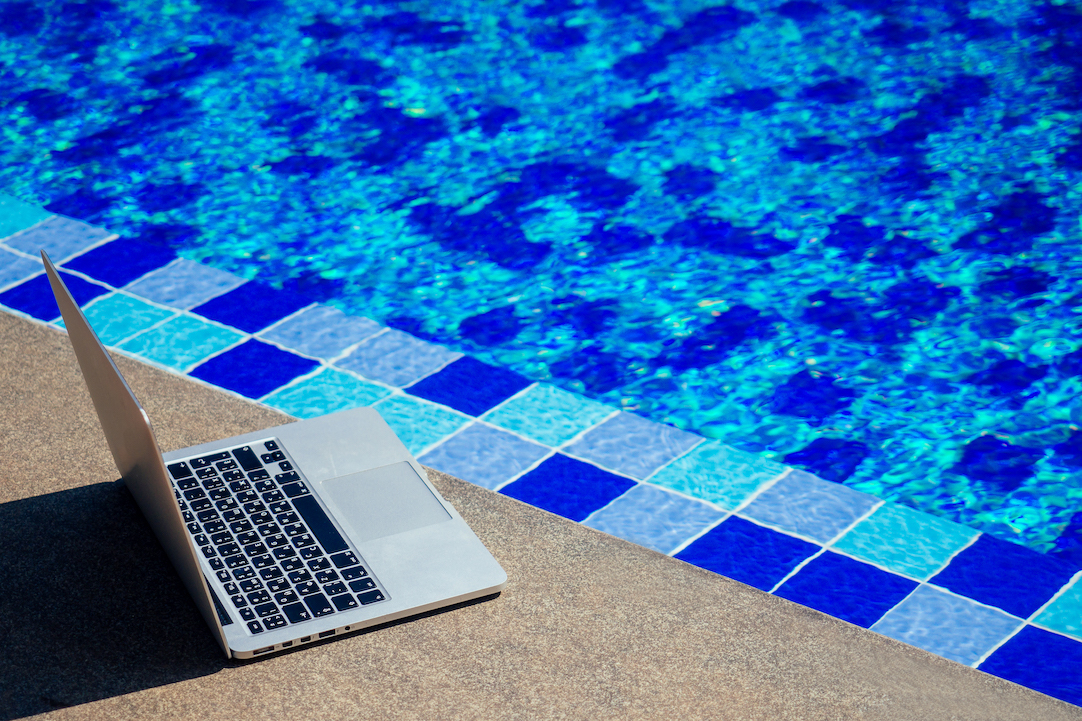If you’ve been reading your work emails on vacation or a day off, you’re not alone. Despite our best attempts of tuning out work and recharging, most of us don’t. Since the early 1990’s, software has helped us manage the divide of our digital and personal lives, most notably, the out-of-the-office reply. While setting up the email can be a big relief to senders, who think that they will finally unplug, keeping the out-of-office covenant is often never achieved. The first 24 hours are when the guilt and paranoia set in; “What if something urgent is going on?” or “I’ll only check once a day,” we promise to ourselves. Soon, we’re checking when we’re on our way to the bathroom or when others are out of plain sight. The rate of employee burnout isn’t going to decrease without acknowledging how technology, culture, and psychology come together.
How did we get here?
It might be easy to say that you can separate work and life and unplug but human beings are well, human. We place a higher value on our own knowledge and expertise than we do on others. Delegating to others who may not respond the same way as we would can feel risky. What if someone we left in charge makes a mistake or forgets to do something? While it may be easy to direct people to others who can help, a certain threshold of trust in someone else as needed. Furthermore, we need to come to grips with our perfectionist tendencies.
The second factor that draws us back to checking email, is our desire to feel like needed. When we are out-of-the-office, our time is often unstructured and unpredictable. Sure, we may have to buy tickets to the aquarium at a certain time or make dinner reservations, but other than that, no one is asking us to do something every minute of the day, and more importantly, to fix something that has gone wrong. Having no demands after having constant demands can feel like jet lag without changing time zones. Your biological needs change and suddenly, the saber-tooth tiger that you’ve been running or fighting from is no where in sight. Finally, our ability to control our lives in the palm of one’s hand with a mobile device that is often always on, doesn’t help the temptation to check email in any way.
Predictions and Alternatives
Email may go away in the future but for now, we can better choices in how we communicate and how we use technology to maintain our sense of sanity. We can read research about the harmful effects unplugging has on the brain, but until we confront it, it won’t improve or go away. And by acknowledging and addressing it’s a disturbance in your life, you can then shift your behaviors.
First, understand your emotional relationship to work email. Do you have a policy of responding within a specific timeframe? Is it another form of doom-scrolling that helps you pass the time? Do you get anxious when you don’t check every 5-10 minutes or can you go longer? Notice if that anxiety increases when you are pulled into responding. What other emotions come up in the process of checking and not-checking? Guilt? Worry?
Second, tech helps. Technology got us here in the first place. Why not, let it aid us in reclaiming our balance. As chatbots are becoming increasingly ominous as a marketing customer service tool, why not be able to create your own personal chatbot at the office. Major phone manufacturers, like Apple, are also enabling settings in your device to turn off or silence notifications when you are unavailable. Apps such as Opal or Freedom can also help you turn-off certain phone apps so that you can’t check them. Finally, to prevent the necessity of writing an out-of-office reply with detailed instructions, how about utilizing project management software such as Smartsheet that details who’s working on what project and where things stand?
Third, shift your company’s culture. Although changing your culture isn’t like a volume button on your phone, reexamining acceptable behaviors that are unconsciously or consciously embedded in your company culture, can definitely help. Do senior leaders use the out-of-office feature and adhere to it, or are they always on? Are there company standards and policies around contacting people when they are out-of-the-office if it’s not an emergency? Are there company standards around email protocol on nights and weekends? By seeing others behave differently, and having not checking email normalized during non-working hours, employees can feel a sense of ease if they are out-of-the-office.
The Future of Out-of-Office replies are what we ultimately make of it. The concept is simple – how do we respectfully communicate with others to let them know we are attending to our own physiological and emotional needs. Whether we write a fancy or funny automatic reply, or take measures to limit the technology access in our environment, we need to take care of ourselves.


